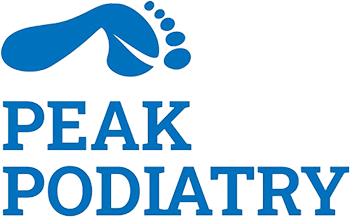
Plantar Fasciitis Treatment in Galway: What Locals Need to Know
Understanding Plantar Fasciitis
Plantar fasciitis is a common condition affecting many individuals, particularly those living in active communities like Galway. It involves inflammation of the plantar fascia, a thick band of tissue that runs along the bottom of your foot and connects your heel bone to your toes. Understanding the causes, symptoms, and treatment options available is essential for effective management.
What Causes Plantar Fasciitis?
Several factors can contribute to the development of plantar fasciitis, including:
- Overuse: Repetitive stress on the plantar fascia due to prolonged standing, walking, or participation in high-impact sports.
- Foot Mechanics: Abnormal foot mechanics such as flat feet or high arches can put excess strain on the plantar fascia.
- Obesity: Additional body weight can increase stress on the plantar fascia.
- Age: The risk of developing plantar fasciitis increases with age due to the natural degeneration of the plantar fascia.
- Occupation: Jobs that require long hours of standing or walking contribute to the risk of developing this condition.
What Are the Symptoms of Plantar Fasciitis?
Individuals with plantar fasciitis typically experience:
- Heel Pain: A sharp, stabbing pain at the bottom of the heel, especially noticeable when taking the first steps in the morning or after sitting for extended periods.
- Stiffness: A feeling of tightness or stiffness in the arch of the foot.
- Swelling: Mild swelling may occur at the heel.
How Can I Treat Plantar Fasciitis?
Treating plantar fasciitis often involves a multi-faceted approach. Here are several effective strategies:
1. Rest and Ice Therapy
Reducing activities that exacerbate the pain and applying ice to the affected area can help alleviate inflammation and discomfort.
2. Stretching and Strengthening Exercises
Exercises that focus on stretching the calf muscles and the plantar fascia can improve flexibility and reduce tension. A healthcare professional can guide you through effective workouts.
3. Orthotics and Footwear
Wearing shoes with good arch support and cushioning is crucial. Custom orthotics may also be recommended to alleviate pressure on the plantar fascia.
4. Physical Therapy
A physical therapist can design a specific rehabilitation program tailored to your needs, focusing on stretching, strengthening, and improving foot mechanics.
5. Medications
Over-the-counter nonsteroidal anti-inflammatory drugs (NSAIDs) like ibuprofen or naproxen can help manage pain and inflammation.
6. Advanced Treatments
If conservative treatments are ineffective, more advanced options like corticosteroid injections or shockwave therapy may be considered. Consulting a specialist at Peak Podiatry Foot Clinic in Galway will help you determine the best course of action.
When Should I See a Podiatrist?
If your heel pain persists despite home treatments, it is vital to consult a podiatrist. Early intervention at Peak Podiatry Foot Clinic can prevent more severe complications and aid in faster recovery.
FAQs About Plantar Fasciitis
1. Can plantar fasciitis go away on its own?
In many cases, plantar fasciitis can improve with conservative treatment, but it may take months. Early intervention is key.
2. Is plantar fasciitis the same as heel spur syndrome?
No, plantar fasciitis and heel spur syndrome are related but not the same. Heel spurs may develop due to chronic plantar fasciitis, but not everyone with plantar fasciitis has heel spurs.
3. How long does it usually take to recover from plantar fasciitis?
Recovery times vary widely; most individuals experience significant improvement within 6 to 12 months with appropriate treatment.
4. What exercises can help with plantar fasciitis?
Stretching exercises for the calf and plantar fascia, along with strengthening exercises for the foot, are beneficial. Consult a physical therapist for tailored exercises.
5. Will I need surgery for plantar fasciitis?
Surgery for plantar fasciitis is rarely necessary and is typically considered only after all conservative treatment options have failed.
Conclusion
Understanding plantar fasciitis and its various treatment options can significantly improve your quality of life. If you are experiencing heel pain, don't hesitate to seek assistance from the qualified professionals at Peak Podiatry Foot Clinic in Galway. We offer evidence-based solutions tailored to your specific needs.
Ready to take the first step towards relief? Book an appointment today!
Ask Robert And His Team
Fill in the form to request a Call From Our Team
Fill in the form to request a Call From Our Team
One of our team will call you for FREE and answer any questions or concerns you may have about your Foot Pain.
One of our team will call you for FREE and answer any questions or concerns you may have about your Foot Pain.
© Copyright 2022. Peak Podiatry All rights reserved.





